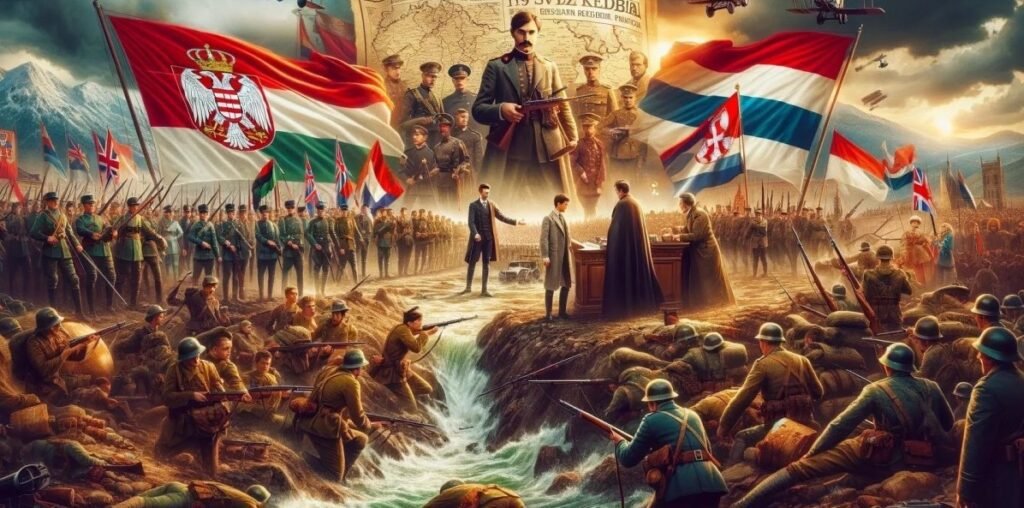The Assassination That Changed History
On June 28, 1914, a seemingly ordinary day took a dramatic turn when Archduke Franz Ferdinand of Austria was assassinated by a Serbian nationalist. This single, tragic event set off a chain reaction that would ultimately lead to the outbreak of World War I. The political landscape in Europe was already tense, with various nationalistic movements and territorial disputes simmering across the continent.
A Complex Web of Alliances
The assassination of the Archduke was the match that ignited a highly volatile situation. Europe was a powder keg, with a complex web of alliances, militarism, and nationalism making it ripe for conflict. Austria-Hungary, infuriated by the assassination, saw an opportunity to crush Serbian nationalism once and for all. On July 28, 1914, exactly one month after the assassination, Austria-Hungary declared war on Serbia.
The Domino Effect
What followed was a rapid escalation of hostilities, as countries bound by alliances were drawn into the conflict. Russia, allied with Serbia, began to mobilize its forces. Germany, allied with Austria-Hungary, declared war on Russia. France, allied with Russia, was soon drawn in as well. The United Kingdom, bound by treaties and concerned about maintaining the balance of power in Europe, also entered the fray. What started as a localized conflict quickly spiraled into a full-scale world war.
A Turning Point in History
The assassination of Archduke Franz Ferdinand was more than just a tragic event; it was a turning point in history. It exposed the fragility of peace in Europe and highlighted the dangers of nationalism and militarism. The ensuing war would reshape the political landscape of Europe and have lasting impacts on the world for generations to come.

